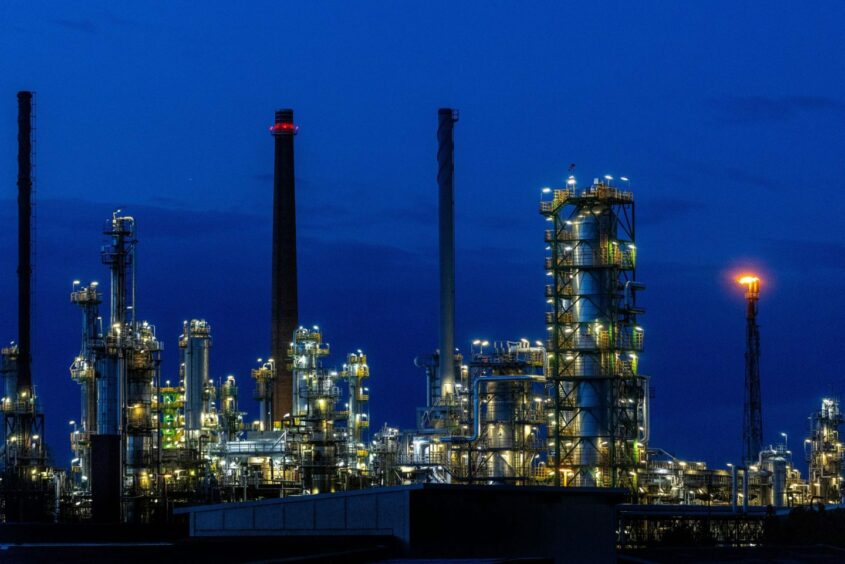
Germany is taking control of Russian oil major Rosneft PJSC’s German unit, including stakes in three oil refineries, as Chancellor Olaf Scholz reacts to the unprecedented energy crisis sparked by the invasion of Ukraine.
Grid regulator BNetzA will become trustee of RN Refining & Marketing GmbH and Rosneft Deutschland GmbH, which account for around 12% of Germany’s oil processing capacity, and its stakes in oil refineries in Schwedt, Karlsruhe and Vohburg, the economy ministry said Friday.
The move “counteracts the impending threat to the security of energy supply and lays an important foundation for the preservation and future of the Schwedt location,” the ministry said in an emailed statement.
It’s an escalation in the economic standoff with Russia and marks another step in Berlin’s increasingly active role in the energy industry as it unwinds decades of tight collaboration with Russia.
Surging gas prices and Moscow’s move to squeeze supplies to Europe have already prompted a series of government bailouts and rescue loans for energy firms. Now, Scholz’s administration is in advanced talks to take over Uniper SE and two other large gas importers as it tries to avoid a collapse of its energy market, according to people familiar with the matter.
The energy crisis continues to ripple through the region’s economy and markets, even as the European Union and national governments race to create new tools to ease the financial pain.
Germany has been hit especially hard because of its reliance on Russian energy imports. The BNetzA has warned Germany may face “waves” of shortages in the event of a cold winter and called on large industrial consumers to reduce their gas consumption to avoid compulsory rationing.
Key Refinery
Taking control of Rosneft Deutschland is meant to secure operations of the Schwedt refinery near the Polish border, which supplies the bulk of the jet fuel for the German capital’s airport and gasoline for the region’s vehicles. The facility has traditionally relied on the Druzhba pipeline from Russia for crude supply.
“The decision is accompanied by a comprehensive package for the future, which will provide a transformational boost for the region and support the refinery to ensure the supply of oil via alternative supply routes,” the ministry said, adding that insurers and banks were unwilling to do business with the companies anymore.
Scholz and Economy Minister Robert Habeck will present more details on the nationalization plan at a news conference in Berlin later Friday, it added.
Recommended for you
